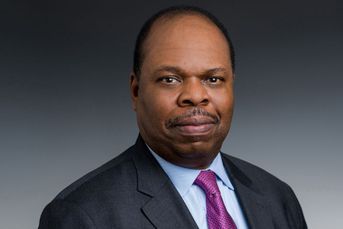Securities firms fight commission cap plan for private placements
The securities industry wants no part of a Finra proposal to cap at 15% commissions and other fees for outside private placements, claiming that it would prevent small business from raising capital
The securities industry wants no part of a Finra proposal to cap at 15% commissions and other fees for outside private placements, claiming that it would prevent small business from raising capital.
The comment period for the proposal, which would mandate that at least 85% of the proceeds from outside private placements be used for the business purposes of the investment, ended last Monday.
Of the 32 comment letters submitted, 19 opposed the Financial Industry Regulatory Authority Inc.’s proposal, 11 wanted to send it back for revisions and only two approved of the proposal in its original form.
“Who died and appointed you the arbiter of how much it costs as a percentage of that capital to offer such programs?” wrote Ken George, executive vice president of VSR Financial Services Inc., an independent broker-dealer that focuses on alternative investments.
Right now, Finra determines commissions and other expenses only on private placements issued by its own broker-dealer members, not outside sponsors. The cap on commissions and other expenses on those deals is 15%, matching the proposal.
The proposal also calls for additional disclosure of the intended use of the offering proceeds, expenses and compensation to broker-dealers.
Finra points to a failed private-placement sponsor, Provident Royalties LLC, as one of the reasons for the proposal.
In an endnote to its January notice to members, Finra stated that Provident’s broker-dealer told investors that “86% of the offering proceeds would be allocated to oil and gas investments, when in fact, more than 50% of the proceeds were used to pay the dividends and expenses of earlier offerings.”
Provident sold $485 million of private placements through a network of dozens of independent broker-dealers. The SEC charged it with fraud in 2009, and leading sellers of the product, including QA3 Financial Corp., have since gone out of business due to crushing legal liabilities.
At the moment, some private placements, particularly oil and gas deals, have commissions and other costs that wouldn’t fall within Finra’s proposed limits.
In such deals, 80 cents or less of each dollar invested is used specifically for the project, or “put into the ground” in industry shorthand. So in other words, commissions and costs can eat up 20 cents of each dollar invested.
One common criticism of the proposed rule changes is the fact that private placements vary widely, and a “one size fits all” approach is misguided.
“Some types of programs will find it appropriate to put 90% of the gross offering proceeds in the ground, some programs 85% and still other programs could only have 80% of the gross offering proceeds going into the ground,” wrote Richard Chess, president of the Real Estate Investment Securities Association, a trade group that includes broker-dealers and product sponsors of private placements and private real estate offerings.
Monitoring private placements, also known as Regulation D offerings, has become a priority for Finra. In a meeting of brokerage executives in January in Phoenix, James Shorris, executive vice president and executive director of enforcement for Finra, said that Reg D private placements and non-traded real estate investment trusts are the first and second areas of focus for Finra enforcement, respectively.
Capping compensation and expenses would hurt compliance, according to another comment.
“If compensation and expenses are limited to 15%, due diligence will necessarily be the first item eliminated from the budget or, in some cases, simply eliminate financing options for an issuer,” said a letter from law firm Weinstein Smith LLP.
A common complaint among the comments is that the proposed rule change would hurt small businesses’ ability to raise money through private-placement offerings.
“The bad news is that … the vast number of small-business owners will be unable to find investors who will provide desperately needed capital to grow these small-cap businesses,” wrote Damon D. Testaverde, managing director with Network 1 Financial Securities Inc.
One popular sponsor of oil and gas private placements, Noble Royalties Inc., has issued private placements that have sales structures that may fall outside Finra’s proposed guidelines, with commissions and management fees totaling 21 cents per every dollar raised, 6 cents more than the proposed limit.
In a filing this month with the SEC, Noble Royalty Access Fund X seeks to raise $45 million through broker-dealers, with $9.5 million of the proceeds to be used for commissions to brokers and a payment to Scott Noble, the fund’s general partner and chief executive.
Noble Royalties buys oil and gas royalties from owners of oil wells and other properties, and makes money from the cash flow of those royalties. Sold by numerous independent broker-dealers, Noble Royalties has $1.2 billion in assets under management.
The firm’s “general policy is not to comment about the ongoing regulatory process,” said Martin Fleming, a spokesman.
The firm has seen the proposal but wouldn’t speculate about how it would affect it in the future, he said.
E-mail Bruce Kelly at [email protected].
Learn more about reprints and licensing for this article.








